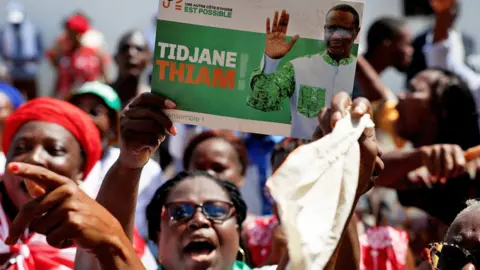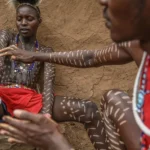In recent years, Ivory Coast has experienced a series of political tensions and conflicts that have often culminated in the use of violence and authoritarian tactics. Among these, the metaphor of “red card politics”—a term borrowed from football—has gained prominence, symbolizing the exclusion, suppression, and sometimes outright elimination of political opponents. While such tactics might offer short-term stability for those in power, they pose a significant risk to the country’s democratic development. Is Ivory Coast’s approach to political rivalry an own goal that could undermine its democratic future?
Understanding Red Card Politics
The phrase “red card politics” refers to the practice of dismissing political opponents through drastic measures—disqualifications, arrests, intimidation, or even violence—akin to a football referee showing a red card to eject a player from the game. In Ivory Coast, this has manifested through the marginalization of opposition leaders, contested elections marred by allegations of fraud, and the suppression of dissenting voices.
Historically, Ivory Coast’s political landscape has been marred by ethnic tensions, power struggles, and disputes over resource control. Leaders have often resorted to heavy-handed tactics to consolidate power, especially during election periods. For example, the 2020 presidential election saw the incumbent, Alassane Ouattara, re-elected amidst opposition boycotts and accusations of electoral manipulation. The suppression of opposition figures and bans on certain political parties have become commonplace, further polarizing the nation.
The Impact on Democracy
While these tactics may temporarily stabilize the political scene, they fundamentally weaken democratic principles:
- Erosion of Political Pluralism: Red card politics stifles diverse political expression, leaving little room for genuine debate or opposition. When leaders exclude or marginalize opponents, the political arena becomes a monochrome battleground, undermining the pluralism essential for a healthy democracy.
- Undermining Rule of Law: Arbitrary arrests, disqualifications, and biased judicial processes erode trust in institutions. Democracy relies on fair, transparent, and accountable governance—elements compromised when political opponents are excluded through “red cards.”
- Fueling Ethnic and Social Divisions: Suppressing opposition often exacerbates ethnic and social tensions. In Ivory Coast, where ethnic identities play a significant role in politics, exclusionary tactics can deepen divisions, risking conflict rather than fostering national unity.
- Discouraging Civic Engagement: When political participation is seen as risky or futile due to repression, citizens become disengaged. A vibrant democracy depends on active citizen involvement, which red card politics discourages.
Own Goal or Strategic Play?
Some leaders might argue that such tactics are necessary to maintain stability and prevent chaos. However, this approach is akin to scoring an own goal in football—an action that ultimately harms the team’s chances of winning. By sacrificing democratic norms for short-term control, Ivory Coast risks long-term instability, international condemnation, and a damaged reputation as a democratic nation.
Furthermore, international observers and regional bodies such as ECOWAS have repeatedly called for respecting democratic processes and refraining from repression. Continued reliance on red card tactics could jeopardize foreign aid, investment, and diplomatic relations—elements crucial for sustained development.
Moving Forward: A Better Playbook
To avoid this own goal, Ivory Coast must embrace inclusive political dialogue, uphold the rule of law, and respect opposition rights. Building institutions that ensure fair elections and protect civil liberties is vital. Encouraging political pluralism and fostering national reconciliation can help heal divisions and lay the groundwork for sustainable democracy.
Conclusion
Ivory Coast’s reliance on red card politics might seem like a quick fix to political challenges, but it ultimately undermines the very democracy it seeks to stabilize. Like in football, avoiding own goals requires strategic play, teamwork, and adherence to the rules—principles that Ivory Coast must embrace to achieve lasting peace and democratic maturity. The true victory lies not in exclusion or repression but in fostering an inclusive, transparent, and resilient political system that serves all Ivorians.
Email Us on editorial@nnafrica.com













